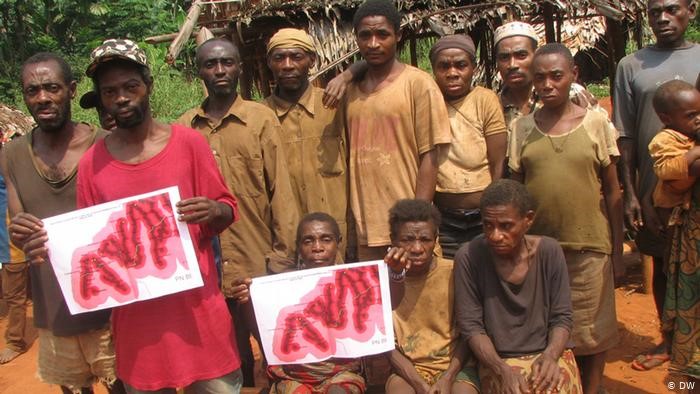Is COVID-19 Afraid Of Cameroon’s Pygmies?

The number of persons tested positive for COVID-19 in Cameroon hit 20,000 this week. The pandemic affects all the 10 regions of the country and has spread across all ethnic communities – except the pygmies, known locally as Baka.
The Bakas are a native community still strange to the trappings of modern civilisation and they inhabit settlements in the Dimako Council Area of the Upper Nyong Division in the East Region.
Health personnel and journalists who visited their settlements report that none of the members of this native community has so far been found to have become infected by the coronavirus.
“The Baka community continues to live their lives as they have always done. They are not familiar with the government-imposed anti-COVID-19 restrictions of distancing, wearing masks and washing of hands,” a staff member at the Dimako Council revealed.
Fifty participants at a holiday camp who visited Mayos, a Baka village, on September 10, said that no inhabitant of the village, well known for its museum of art, was wearing a protective mask.
“The same goes for the other guidelines against COVID-19 by the government such as the washing of hands in the village,” one of the camp participants told a journalist of the government daily.
The Bakas, who are famous for their traditional medicine, do not seem to be informed or interested in getting information about the coronavirus and often dismiss any mention of a new kind of illness.
One health official disclosed, while addressing journalists, that most of the pygmies met by coronavirus sensitisation teams along the roads where they pitch their camps have been informed about the dangers of the pandemic.
A nurse in Dimako said that on being informed of the arrival of a new infection spreading across the country, some of the pygmies living near village communities merely returned to their bush camps, taking with them herbs to reinforce their immune systems, and have continued with their normal lifestyles.
According to the journal, Cameroon Tribune, “Mayos, as well as the other three camps hosting the Bakas within the Dimako Council Area, has been facing the COVID-19 pandemic in their own way. These native communities have been living through this period without fear; they have been carrying out their activities as they have always done, including marriages which are celebrated publicly, as has always been the case.”
Support Our Journalism
There are millions of ordinary people affected by conflict in Africa whose stories are missing in the mainstream media. HumAngle is determined to tell those challenging and under-reported stories, hoping that the people impacted by these conflicts will find the safety and security they deserve.
To ensure that we continue to provide public service coverage, we have a small favour to ask you. We want you to be part of our journalistic endeavour by contributing a token to us.
Your donation will further promote a robust, free, and independent media.
Donate Here




